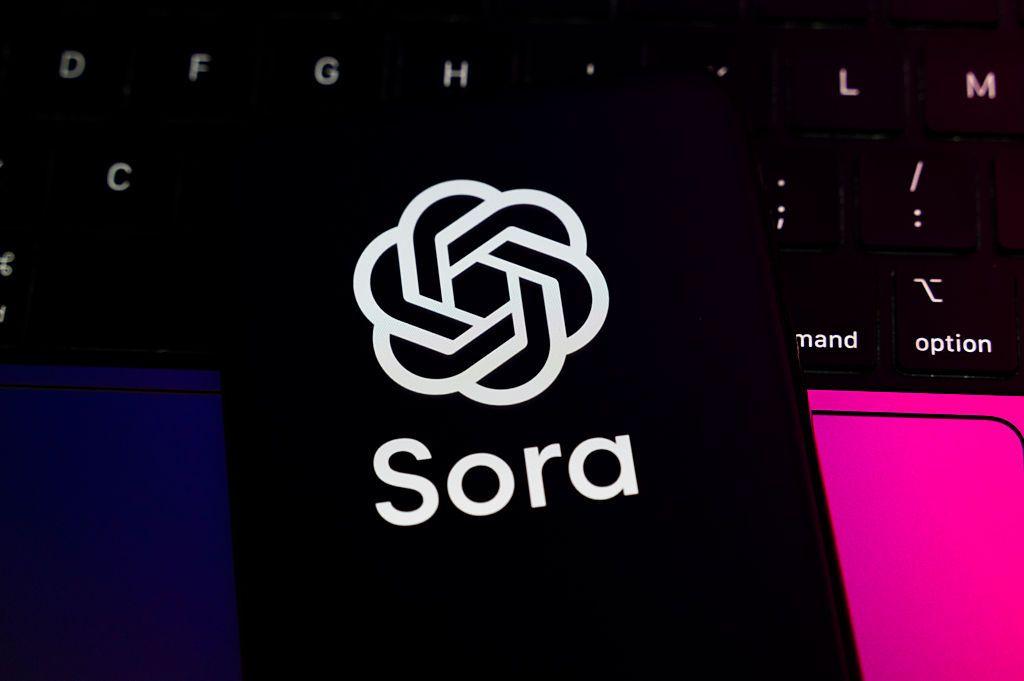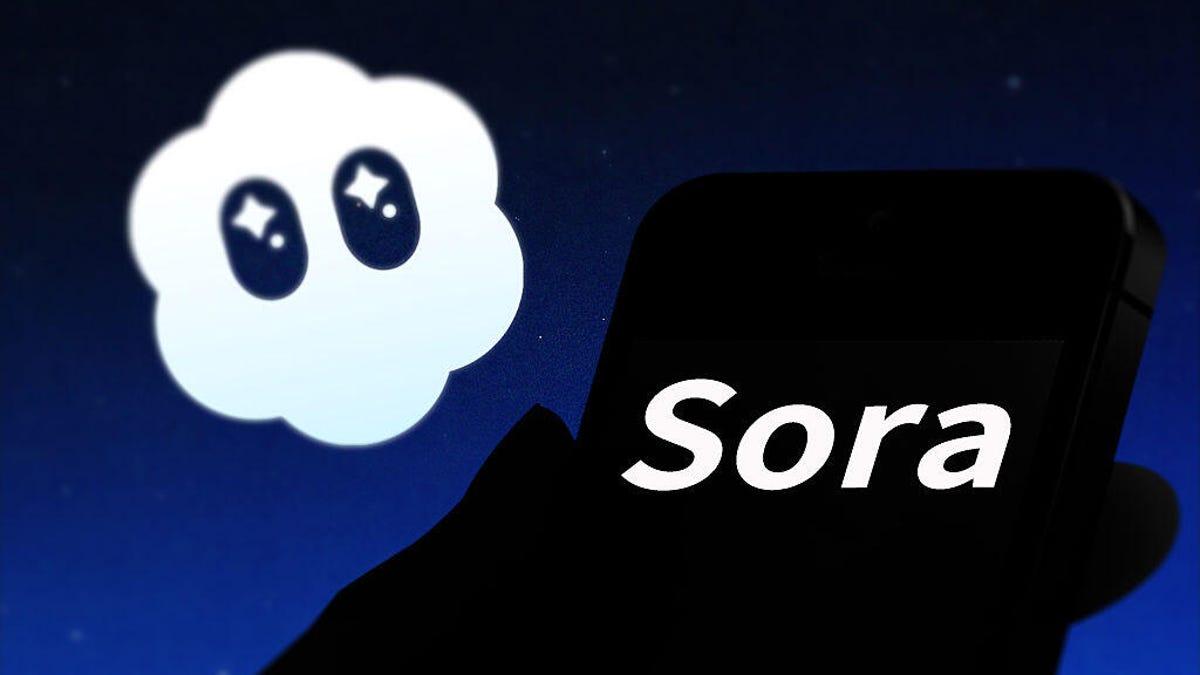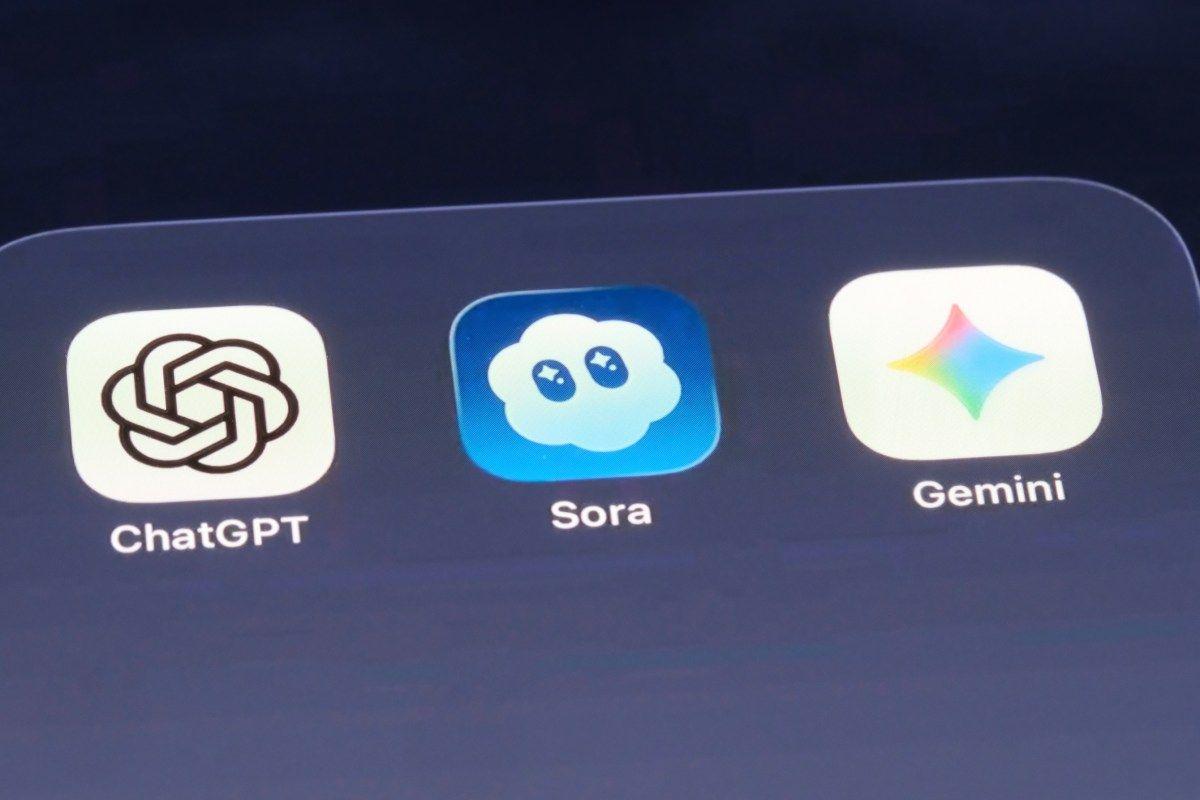Sora Copycats Flood App Stores: OpenAI's AI Video App Faces Imitation Challenges
6 Sources
6 Sources
[1]
Sora copycats flooded Apple's App Store, and some still remain | TechCrunch
Sora's rapid adoption drove a number of App Store scammers to try to get in on the act. Following the launch of OpenAI's invite-only, video-generating mobile app last week, Apple's App Store was flooded with fakes that also proclaimed themselves to be "Sora" or "Sora 2" -- the latter a reference to the underlying new AI video model that was released alongside the mobile app. These apps somehow made it past Apple's App Review process. They actually had public listings on the App Store, despite using a brand name that's trademarked by OpenAI and fairly well known in the tech industry even before the app's debut. According to research provided to TechCrunch upon our request by app intelligence platform Appfigures, there were over a dozen "Sora"-branded apps that went live on the App Store after the official app's launch. Over half of them used "Sora 2" in their names specifically. (One of those was spotted by Apple blogger and pundit, John Gruber, who called it the "App Store scam of the week.") Many of the apps were not newcomers, either. Some had been live on the App Store -- sometimes using other names -- since earlier in the year or even last year. The impostors, which include those live on Google Play as well, had seen around 300,000 collective installs to date, with north of 80,000 installs coming in after the official Sora's app launch. (OpenAI has since announced that Sora's official mobile app has been downloaded 1 million times, for comparison.) Nearly all of the impostors had been updated just after OpenAI's Sora app launch to capitalize on consumer demand and searches, often by changing their name. It's unclear how these apps were able to slip past Apple's reviewers; Apple did end up pulling many of them from its App Store, Appfigures said. Of the imposter apps, the largest one was named "Sora 2 - AI Video Generator" -- an obvious attempt to game App Store searches for the keyword "sora." It saw more than 50,000 installs after the launch of the official app. As of the time of writing, a few Sora-branded apps are still live, despite the potential for consumer confusion. One, "PetReels -- Sora for Pets," has seen only a few hundred installs, however. Another one, "Viral AI Photo Maker: Vi-sora" is trying to squeeze the word Sora in there, but hasn't gained traction, either. Doing slightly better is the app using the branding "Sora 2" in its name (Sora 2 - Video Generator Ai). It's pulled in north of 6,000 downloads and counting. Collectively, the apps earned more than $160,000 -- decent money considering their short lives. Apple was asked for comment on how Sora-branded apps were able to go live and if these remaining Sora-branded apps would be removed. It did not respond prior to publication.
[2]
Sora 2 clones start flooding the App Store worldwide - 9to5Mac
While OpenAI's Sora app remains available only in the US and Canada, App Store users around the world are being hit with a barrage of clones attempting to cash in on its hype. As noted by Daring Fireball's John Gruber, there's an app called 'Sora 2: AI Video Generator' available on the App Store: Looking a bit further, this app currently sits in 9th place in the App Store's "Top Photo & Video Apps" chart. And while this particular app may be quickly rising in the ranks, it is far from the only one. A quick search for "Sora 2" brings up about a dozen apps, all named after OpenAI's new product. One even features OpenAI's logo in the icon, while another also lists Google's Veo 3 model in the subtitle. All of them offer in-app purchases and, sometimes, hefty weekly subscriptions. This situation is hardly novel, or even surprising, given how often it happens. Still, considering that not everyone knows that OpenAI's official Sora app is currently available only in the US and Canada, it's easy to see how users around the world could be deceived into thinking the "Sora" app they're downloading, or even subscribing weekly to, is the real one.
[3]
Beware phony Sora apps on the Apple App Store
Demand remains high for Sora, OpenAI's new invite-only AI video app for iOS users. So high, in fact, that scammers are rushing to fill demand. As TechCrunch reported, phony Sora apps somehow slipped past Apple's App Store review process. TechCrunch reported that at least a dozen copycat apps were on the App Store after Sora's launch, though most of these listings have since been removed. As of this writing, we didn't find any copycat apps using the name Sora, though there are other AI video apps claiming to grant access to the underlying Sora 2 generative AI video model. However, over at the Google Play app store, some phony Sora listings are still live. We're not talking about unrelated, previously existing apps that use the name Sora in some way, but listings with names like "Sora 2 Video Maker." For now, the Sora app is only available on iOS for users in the United States and Canada, "with the intent to quickly expand to additional countries," per OpenAI. The app is free to download even without an invite code, but you won't be able to do anything without an invite. If you are downloading Sora, it's easy to find, as it's still the No. 1 app in the App Store. Before downloading, make sure it's provided "by OpenAI." Sora is an AI video generator with a built-in social feed, and eager OpenAI fans are still scrambling for invites. The app is currently in the midst of a copyright drama. In the days after the app launch, the Sora feed was dominated by videos of copyright-protected characters like SpongeBob Squarepants, various Pokémon, and Rick and Morty. We've been testing the app here at Mashable to see how it compares to other AI video models like Google Veo 3 and LumaAI's Ray3, and we'll have more coverage coming soon. In the meantime, be wary of any unknown apps you find on the app stores. Don't assume that just because an app appears in the store that it's safe to download.
[4]
Sora imposters run amok on the App Store - here's how to find the real one by OpenAI
What's happened? Sora's release buzz opened up the door for opportunists. Some clones were brand-new, while others were older apps that slapped on "Sora" naming right after the official launch to ride search momentum. According to TechCrunch, App Store analysts Appfigures counted more than a dozen Sora-branded titles post-launch, over half leaning on "Sora 2" to snag keyword traffic. Together, the fakes reached about 300,000 installs, including 80,000 after Sora's debut, and pulled in more than $160,000. This is after OpenAI confirmed Sora 2 topped 1 million downloads at record speed. Apple did remove many listings, but examples like "PetReels, Sora for Pets," "Viral AI Photo Maker: Vi-sora," and "Sora 2, Video Generator Ai" were not immediately taken down. One top fake, "Sora 2, AI Video Generator," topped 50,000 installs. This is important because: Hot app launches create such a buzz that users aren't always as careful over what they download. When trademarked names slip past review, people tap the wrong result, pay for the wrong thing, and that can erode trust in app download portals. Keyword gaming has worked well here, and quickly. It mean renaming titles can vault junk apps into your search results. Review blind spots become headlines, and mean users will need to be more vigilant when looking for a popular new app. Recommended Videos Why should I care? Because one careless tap can cost you. Copycats turn curiosity into charges and is a mess to untangle. You might think you're grabbing OpenAI's app and then suddenly you've been charged for a substandard app with ease. Your wallet is the first target as many clones push free trials that flip to pricey subscriptions before you notice. Low-quality apps often ask for more access than they need, which could let in malware. This is why it's important to always read and understand what permissions the app needs. Okay, so what's next? Apple is still clearing out fakes, and interest in the real app keeps climbing. You can avoid the noise with a couple of quick checks and get to OpenAI's listing without the guesswork. Search for "Sora by OpenAI" and confirm the publisher shows as OpenAI. Your best route is a trusted link from OpenAI's site or social accounts, then reporting any obvious fakes from the App Store page.
[5]
Watch Out for Fake Sora Apps
If you want to try Sora, make sure you're downloading the official app to your iPhone. Did you know you can customize Google to filter out garbage? Take these steps for better search results, including adding my work at Lifehacker as a preferred source. There's much to say about Sora, which is essentially OpenAI's TikTok for AI slop. But putting my concerns aside for what appears to be a glorified deepfake machine, it's evident the app is popular. OpenAI says Sora hit one million downloads in under five days, likely fueled by interest from users seeing hyper-realistic videos going viral on social media. But with big hype, comes big risk for fraud. While OpenAI made Sora free to download, the app started out invite-only, which only built anticipation for users who wanted in. As such, those users might open the App Store, search for Sora, and download the first app that makes itself available -- especially if they can start using it right away. That's exactly what happened in this case. As reported by TechCrunch, over a dozen fake Sora apps were made available on the iOS App Store following the launch of OpenAI's real app. These apps were either called "Sora" or "Sora 2," the latter in reference to the specific video model powering these hyper-realistic AI generations. You might assume developers hastily uploaded these apps to the App Store in an attempt to pull traffic from users curious about Sora. And while that is true, a number of these apps were already live on the App Store long before OpenAI ever announced the Sora app -- some of which were operating under different names. It's not clear how many changed their names in this situation, but it's apparent that many did adjust their names shortly after Sora launched. TechCrunch says some apps had been available on the App Store since earlier this year, while others were available since last year. Apple's App Store isn't the only affected app market here. Google's Play Store played host to fraudulent Sora apps, as well. Taken together, these apps were downloaded more than 300,000 times, with more than 80,000 of those occurring after Sora's official launch. Perhaps the most successful fake Sora app, "Sora 2 - AI Video Generator," pulled in over 50,000 downloads alone once OpenAI released Sora. TechCrunch reports that these apps collectively earned over $160,000, all from apps claiming to be something else entirely. At this time, most, but not all, of these apps have been pulled from app stores. First of all, if the app you're trying to download is trendy and popular, like Sora, assume there will be developers trying to spoof it. Malicious developers want to trick users looking for one app into downloading theirs, whether it's to install malware on your device, steal your information, or make money off you by running ads. If they know a million people are going to be downloading an app, hosting a fraudulent one makes for good business. When looking through the app store's results page, pay close attention to the name of the app. Sure, it might have "Sora" in the title, but does it have any odd, extraneous words added in? "Sora 2 - AI Video Generator" isn't the worst fake name I've ever seen, but the app's name is Sora, not Sora 2. OpenAI also likely wouldn't add AI Video Generator to its own product's name: They probably know the product speaks for itself, and wouldn't feel the need to clutter up the name with extra details. Instead, the real title is "Sora by OpenAI," likely done to both distinguish itself from legitimate apps named Sora, as well as indicate that it is indeed made by OpenAI. Speaking of which, you should always make sure the app in question is distributed by the company that made it. If you're trying to figure out which of the Sora apps on your app store is the real one, it's going to be the one that says it's made by OpenAI. I'm not talking about the title alone, either. Tap on the app, and look at the developer name underneath the title. If it doesn't match the exact company you know develops the app, don't download it. You'll also want to investigate the copy and images advertising the app here. Is everything written well, and free of spelling and grammar mistakes? Are the images high quality, and reflect the experience the app it advertising? Don't download something that feels slapped together: Some fraudsters don't bother with the finer details. Finally, make sure the app in question is actually available on the platform you're using. Sora is currently iOS-only, which means any app claiming to be Sora by OpenAI on the Play Store is a fraud. If you're on Android, you'll simply need to wait for OpenAI to make the app for your platform.
[6]
Watch Out: Sora 2 Copycat Apps Mislead Users Worldwide
Sora 2's Viral AI Video Tool Spawns Copycat Apps on the App Store: How Can Users Safely Avoid App Store Scams and Data Risks? OpenAI recently launched the Sora 2 model, a highly advanced AI video generation tool. It allows users to create realistic video clips from text prompts, making the AI model popular among content creators, marketers, and educators. However, the initial success has triggered a surge of copycat apps in the Apple App Store. These fake Sora 2 Apps are misleading users into thinking they are downloading the official one, thus posing financial and data privacy risks.
Share
Share
Copy Link
OpenAI's Sora app launch triggers a wave of copycat apps on Apple's App Store and Google Play, raising concerns about user safety and app store review processes.
Sora's Launch Sparks Copycat Frenzy
OpenAI's recent launch of Sora, an invite-only AI video-generating mobile app, has been met with a rapid proliferation of copycat applications across both Apple's App Store and Google Play. This surge of imitation apps has raised significant concerns regarding user safety and the efficacy of current app store review mechanisms
1
.Source: 9to5Mac
According to analyses by app intelligence platform Appfigures, more than a dozen Sora-branded impostors quickly emerged. These fraudulent apps collectively accumulated approximately 300,000 installs, with a notable 80,000 occurring post-official launch, and generated over $160,000 in revenue, exploiting the legitimate app's popularity. Many were not new apps but existing ones rebranded to mimic Sora
1
.App Store Oversight and User Vigilance
The widespread presence of these unauthorized apps, some even using OpenAI's trademarked name, has prompted scrutiny of Apple's App Review process. While many have since been removed, some still persist, posing a risk of user confusion and potential scams
1
. This incident underscores an ongoing challenge for app marketplaces to maintain platform integrity2
.
Source: Lifehacker
Users are strongly advised to exercise caution. When searching for the authentic Sora app, it is crucial to verify that the publisher is explicitly listed as OpenAI. Consumers should be wary of apps with suspicious titles like "Sora 2" or those containing extraneous descriptive words, and always check for high-quality descriptions and absence of grammatical errors
4
5
. Continued vigilance from users and improved review processes from platform providers are essential to safeguard against such deceptive practices.Related Stories
References
Summarized by
Navi
[3]
[4]
[5]
Related Stories
OpenAI's Sora App Takes iOS by Storm: Viral Success and Invite-Only Hype
02 Oct 2025•Technology

OpenAI's Sora 2: Revolutionizing AI Video Generation and Stirring Controversy
07 Oct 2025•Technology

OpenAI's Sora Video Generator Raises Safety Concerns as AI-Generated Content Becomes Indistinguishable from Reality
08 Nov 2025•Technology

Recent Highlights
1
Samsung unveils Galaxy S26 lineup with Privacy Display tech and expanded AI capabilities
Technology

2
Anthropic refuses Pentagon's ultimatum over AI use in mass surveillance and autonomous weapons
Policy and Regulation

3
AI models deploy nuclear weapons in 95% of war games, raising alarm over military use
Science and Research





